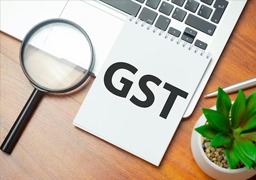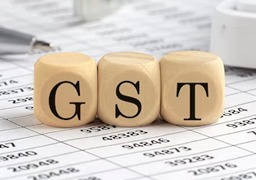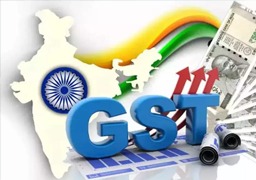# tin
12 posts in `tin` tag
.jpg)
India Company Registration Costs: A Detailed Analysis
The costs of creating a company in India are covered in full in this blog, including state taxes, professional fees, DIN fees, MCA fees, and DSC fees. It also offers a table that summarizes the associated expenditures and describes the variables that influence business registration fees in India. For entrepreneurs and business owners wishing to form a company in India, the blog is an invaluable resource.

Understanding GSTR 11: An All-Inclusive Manual for Compliance and Filing
This blog offers a thorough explanation of GSTR 11 and covers its regulations, qualifying requirements, return filing procedure, and non-compliance penalties. For embassies, UN agencies, and other notified parties who must file GSTR 11 and adhere to Indian GST legislation, it is an extensive resource.

GSTR-3B Revisions and Input Tax Credit (ITC) Reporting
Input Tax Credit (ITC) reporting is now subject to additional limitations as a result of the most recent GSTR-3B modifications. An extensive examination of the modifications, ramifications, and recommended strategies for compliance can be found in this blog article. To reduce the possibility of receiving notices and fines, become familiar with the updated GSTR-3B format and make sure that ITC reporting is accurate.

GST Amnesty Scheme August 2024: A Golden Opportunity for Taxpayers
The GST Amnesty Scheme 2024 is a one-time opportunity for taxpayers to appeal against GST demand orders issued on or before March 31, 2023. This blog post provides a comprehensive guide to the scheme, including its benefits, eligibility criteria, and preparation requirements. It also highlights the issues and challenges that taxpayers may face while availing the scheme.

Understanding Scrutiny Assessment under Income Tax Section 143(3) - A Comprehensive Guide
This blog post provides a comprehensive guide to Scrutiny Assessment under Income Tax Section 143(3), including its purpose, time limit, notice, and hearing process. It helps taxpayers understand the importance of complying with the income tax laws and avoiding penalties.

Understanding the Section 143(2) Notice Time Limit: An Overview for Taxpayers
The time limit for issue of notice under Section 143(2) of the Income-tax Act, 1961, is six months from the end of the financial year in which the return of income is filed. This time limit can be extended by the Commissioner of Income-tax or the Chief Commissioner of Income-tax, as the case may be, for a period not exceeding six months. Taxpayers must comply with the notice issued by the AO within the prescribed period to avoid adverse consequences.

Understanding Section 122(1) of the GST Act: A Complete Guide
This blog provides a detailed analysis of Section 122(1) of the GST Act, outlining the various offenses and penalties related to GST in India. It covers supply-related offenses, tax evasion, and non-compliance, as well as registration and documentation-related offenses.

Explaining Income Tax Notice Section 143(2): A Detailed Guide to Section 143(3) Scrutiny
This blog post provides an in-depth explanation of the income tax notice under Section 143(2) and the scrutiny process under Section 143(3). It covers the types of notices, consequences of ignoring, and time limits for issuing notices and final assessment orders, helping taxpayers navigate the complexities of the income tax laws.

Budget 2024: An Examination of the New Section 74A
Budget 2024 has introduced a new provision, Section 74A, which aims to bring clarity to the insurance sector and reduce compliance costs for startups. This blog post provides an in-depth analysis of Section 74A, its features, penalty provisions, and implications on the insurance sector and startups.

Understanding Depreciation under Section 32 of the Income Tax Act
This extensive blog explores the nuances of depreciation for Indian firms. Examining Section 32 of the Income Tax Act, it explains how business owners can lower their tax burden by deducting depreciation on a variety of assets. Important ideas including depreciation rates, computation techniques, and qualifying requirements are covered in the blog. It also emphasizes the advantages of depreciation claims and provides useful advice for companies to make sure they maximize tax efficiency while abiding by rule

A Complete Guide to Form 10BBB for Notified Pension Funds
Form 10BBB is essential for notified Pension Funds to report their investments and claim tax exemptions under section 10(23FE) of the Income-tax Act. This blog provides a detailed guide on the purpose of Form 10BBB, who needs to file it, the contents required, and a step-by-step process for filing. It emphasizes the importance of accurate and timely submission to maintain the tax-exempt status of the Pension Fund. Avoid common mistakes and ensure compliance to benefit from the exemptions and contribute to infrastructure growth.

A Deep Dive into Scrutiny Assessment under Income Tax (Section 143(3))
Filing your Income Tax Return can lead to a Scrutiny Assessment under Section 143(3). This blog explains what a Scrutiny Assessment is, why it might happen, and provides valuable tips for a smooth and successful assessment process.
